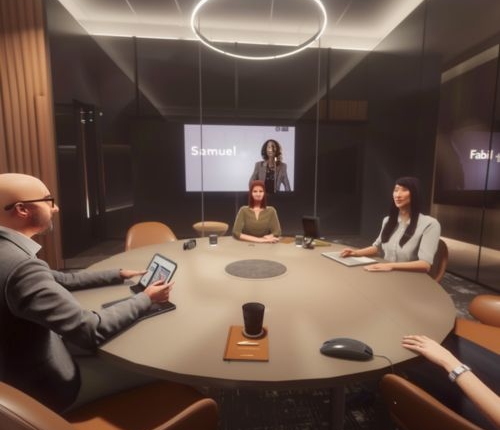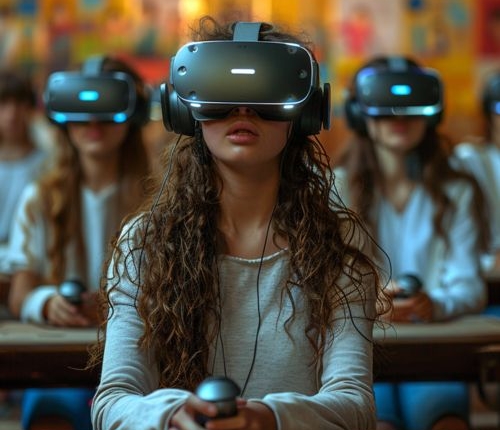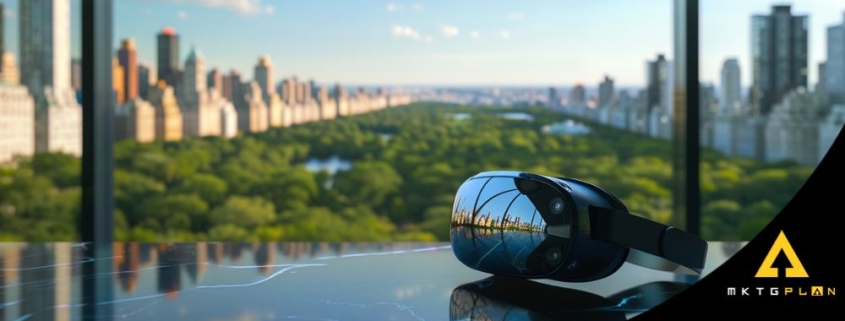Mark Zuckerberg’s Vision for Transforming the Classroom Experience
Picture this: You hop on a school bus and suddenly you’re on a journey through the human body, experiencing its inner workings up close—not on “The Magic School Bus,” but through Meta’s Quest virtual reality headsets. This digital adventure is just a glimpse of what Meta aims to offer students, making complex scientific concepts accessible and engaging.
Meta is gearing up to introduce new software for educators later this year, designed to streamline the use of VR technology in classrooms. This suite of tools will allow teachers to simultaneously manage and program multiple Quest headsets, access a variety of educational applications, and maintain better oversight over how students engage with the technology.
The integration of VR in education opens up a world of possibilities. It could, for instance, transport high school drama students to the 17th century to witness a Shakespeare play at the Globe Theatre as if they were really there. However, this technology also raises important concerns about digital safety, the impact of increased screen time, and the real effectiveness of VR in enhancing educational outcomes.

“Imagine a future where you can teach biology and chemistry without a fully equipped lab, or take your students on a historical walk through the streets of Ancient Rome,” shared Nick Clegg, Meta’s President of Global Affairs and leader of the Quest education initiative, during a virtual reality interview before the official announcement.
These initiatives by Meta represent a significant step towards transforming traditional educational environments, providing students with immersive learning experiences that were once unimaginable.
Meta’s drive to make virtual reality more accessible to educators and students is a key part of its grand vision for the metaverse—a future where people spend significant time in a digital universe using VR headsets for work, learning, and social interaction. Meta is betting billions on this vision, anticipating a shift in how we experience the world.
One of the unique advantages of VR, according to Meta, is its ability to transcend real-world constraints such as time, space, and gravity. For instance, during my interview with Nick Clegg, although I was in an office in Manhattan and he was in London, VR technology made it feel like we were sitting together at the same desk. However, it’s important to note that the avatars in Meta’s virtual realm still have a somewhat cartoonish, leg-less appearance that only vaguely resembles the actual users.
Yet, the effectiveness of VR in enhancing educational outcomes remains an open question. Vincent Quan, an education researcher and co-executive director of the Abdul Latif Jameel Poverty Action Lab, emphasized the need for further research to understand the true impact of VR in learning. “While VR is certainly promising and exciting, it’s crucial to critically assess whether it’s genuinely beneficial or just a novel innovation,” Quan remarked. He added that the results from technology in education vary widely depending on the tools and methods used.
Despite these uncertainties, early studies like a 2022 report by PwC suggest some positive signs; it showed that students undergoing soft skills training in VR were more engaged than those in conventional learning setups. Meta also mentions that the new features in the Quest headsets are in direct response to feedback from teachers who use them and from developers who are actively creating educational applications for these platforms.
Pioneering VR in Education: Case Studies from New Mexico University and Morehouse College

New Mexico University and Morehouse College are leading examples of how educational institutions are leveraging Meta’s virtual reality technology. New Mexico University uses the VR headsets to enable criminal justice students to explore virtual crime scenes, while Morehouse College has created a “digital twin campus” where students can learn various subjects in a fully immersive VR environment. These initiatives are part of a partnership with Meta to explore the educational potential of VR technology.
Nick Clegg, discussing the practical use of these technologies in education, highlighted the straightforward needs of educators: “They want this technology to be ready to use right out of the box. They’re not interested in spending time setting up each device individually. What’s crucial for them is having complete visibility and control over what students are experiencing,” he explained. This feedback has significantly shaped the development of Meta’s new Quest education software.
Additionally, for younger users, specifically students aged 13 to 17, the new software includes enhanced safety features. According to Clegg, these protections prevent access to the Meta Quest app store, ensuring that students can only use teacher-approved applications on the devices. This approach is designed to create a safer and more focused learning environment.
Redefining Educational Norms with VR Technology
Integrating VR technology into the classroom poses several challenges and questions, particularly around cost. Even though Meta’s Quest 3 headsets are relatively affordable compared to other VR devices, with a starting price of $499 each, they still represent a significant investment for many schools that are operating on tight budgets.
Vincent Quan expressed some skepticism about the equitable distribution of such technology. “These new educational tools have great potential and are often touted as a way to level the playing field,” he noted. “But in reality, the students who could benefit the most from extra help often lack the necessary resources or familiarity with the technology. This can lead to a widening rather than narrowing of the educational gap.”
Nick Clegg, acknowledging these concerns, admitted that cost is a consistent challenge when introducing new technologies into education. “Any expense is more burdensome for those with fewer means,” he said. However, he argued that VR could eventually reduce costs in educational settings, offering an example: “Imagine being able to virtually visit a museum instead of having to fund a physical trip. This could significantly lower the costs of providing enriching educational experiences.”
I also discussed with Clegg the potential social implications of VR in education, such as concerns that students might become isolated, interacting more with digital environments than with each other in person. Clegg disagreed with the notion that this scenario was dystopian. “In the future, we might look back and think that our old system of education—children sitting quietly at desks, not interacting but focusing solely on textbooks—was actually the dystopian scenario. VR could usher in a more engaging and dynamic form of learning
How Mark Zuckerberg is Steering Marketing Strategies for VR in Education
As the face of Meta, Mark Zuckerberg is deeply involved in shaping the future of virtual reality, particularly in educational settings. Under his leadership, Meta is not just creating cutting-edge VR technology but also crafting strategic marketing campaigns that emphasize the transformative potential of VR in the classroom.
Emphasizing Educational Benefits
Zuckerberg has consistently highlighted how VR can revolutionize learning by providing immersive experiences that are otherwise impossible. From virtual field trips to historical sites to interactive science labs that require expensive equipment, Meta’s marketing under Zuckerberg aims to show that VR can make education more engaging and accessible.
Collaborating with Educational Leaders
Under Zuckerberg’s guidance, Meta actively seeks partnerships with educational institutions to demonstrate the practical benefits of VR. These collaborations are not just test beds for technology but also serve as powerful case studies in Meta’s marketing materials, showcasing real-world applications and successes.
Focusing on Long-Term Impact
Zuckerberg’s approach includes positioning VR as a long-term investment in educational technology. Marketing materials often discuss the potential long-term savings for schools, such as reduced costs in physical materials and field trips, aligning economic incentives with educational outcomes.
Leveraging Social Proof
To amplify its marketing effectiveness, Meta, directed by Zuckerberg, leverages testimonials from teachers and students who have experienced the benefits of VR firsthand. These testimonials are featured in various communications, from social media posts to conference presentations, providing relatable success stories that resonate with educational stakeholders.
By steering these marketing strategies, Mark Zuckerberg is not only promoting a product but also advocating for a shift in educational paradigms, suggesting a future where digital and traditional learning environments converge for enhanced educational experiences.



